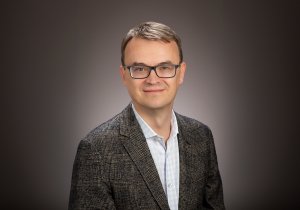Presented By: Nuclear Engineering & Radiological Sciences
NERS Colloquium: Heuristic vs Theoretically Complete Sources of Uncertainty
Speaker: Tomasz Kozlowski, University of Illinois Urbana-Champaign

Abstract: A predictive science requires advanced mathematical and computational tools that explain how uncertainties, ubiquitous in all modeling and simulation efforts, affect our predictions and understanding of complex phenomena. This remains to be a fundamental difficulty in most modeling and simulation applications. There are many uncertainty classification systems which occur in modeling and simulation, most practical uncertainty frameworks are discipline-specific or model-specific. These classification systems define categories of uncertainties which need to be considered for a specific model or application. Such uncertainty frameworks cannot be proved to be complete, and certainly are not universal. To develop a complete set of errors associated with modeling and simulation, it is necessary to define every error that could affect the accuracy of computational model’s prediction of a real-world system regardless of the model, discipline, or application, i.e., a theoretically complete set of errors. The presentation will show three main types of uncertainty frameworks, including a theoretically complete set of errors that, if accounted for, would result in the correct prediction of reality. The presented theoretically complete set of errors is a set of thirteen distinct difference terms, which are closely related to current practices in verification, validation, and uncertainty quantification. It can be easily shown that these thirteen errors represent a theoretically complete set of errors.
Dr. Tomasz Kozlowski is an Associate Professor in the Department of Nuclear, Plasma, and Radiological Engineering at University of Illinois Urbana-Champaign. Dr. Kozlowski received his Ph.D. in Nuclear Engineering from Purdue University in 2005, where he worked on spatial homogenization methods for transport calculations, PARCS code development, and multi-physics RELAP5/PARCS and TRACE/PARCS coupling. Later, he worked at the Division of Nuclear Power Safety at the Royal Institute of Technology in Stockholm, Sweden, where he taught numerical methods and conducted researcher on BWR stability, BWR safety analysis, and multi-physics coupling methods. At the University of Illinois, he worked on a variety of topics related to code validation, uncertainty quantification, Bayesian statistics, and LWR, MSR, HTGR reactor analysis.
Dr. Tomasz Kozlowski is an Associate Professor in the Department of Nuclear, Plasma, and Radiological Engineering at University of Illinois Urbana-Champaign. Dr. Kozlowski received his Ph.D. in Nuclear Engineering from Purdue University in 2005, where he worked on spatial homogenization methods for transport calculations, PARCS code development, and multi-physics RELAP5/PARCS and TRACE/PARCS coupling. Later, he worked at the Division of Nuclear Power Safety at the Royal Institute of Technology in Stockholm, Sweden, where he taught numerical methods and conducted researcher on BWR stability, BWR safety analysis, and multi-physics coupling methods. At the University of Illinois, he worked on a variety of topics related to code validation, uncertainty quantification, Bayesian statistics, and LWR, MSR, HTGR reactor analysis.